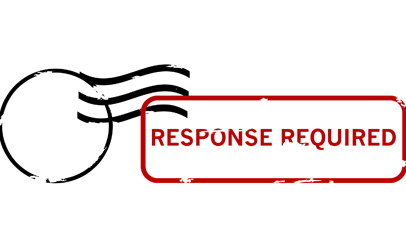Operators of a pecan plant are on notice because federal inspectors found live cockroaches, lab-confirmed rodent feces, general filth, and nuts soaking in a swimming pool chemical at the Orangeburg Pecan Co. Inc.
The Food and Drug Administration has given the firm repeated opportunities to correct problems in the facility, according to a May 17 warning letter made public in recent days. Food companies are given 15 working days to respond to FDA warning letters.
 “To date we have not received a response from you,” Ingrid A. Zambrana, an FDA director in the agency’s Atlanta district, wrote in the warning letter.
“To date we have not received a response from you,” Ingrid A. Zambrana, an FDA director in the agency’s Atlanta district, wrote in the warning letter.
Among the repeat violations observed was the illegal use of “BioGuard maintain CLC3 swimming pool multi-purpose granular chlorine.” An investigator documented that the chemical is used by the firm as a hand dip, a pecan meat wash, and as an overnight soak of in-shell pecans prior to cracking.
“These are food additive uses because there is a reasonable expectation that these uses will result in the chlorine compound migrating into your pecans,” according to the warning letter.
FDA staff most recently inspected the Orangeburg, SC, location of Orangeburg Pecan Company Inc. from Oct. 17 through Nov. 16, 2017. They reported multiple “serious violations” of the Current Good Manfacturing Practice (cGMP) and Hazard Analysis Risk-Based Preventive Controls for Human Food regulation (CGMP & PC rule).
In addition to the illegal use of the swimming pool chemical, the firm failed to take effective measures to exclude pests from its processing areas and to protect against contamination of food in a variety of ways, FDA told company president Frederick J.D. Felder.
An investigator observed live cockroaches on the wall next to the bay door in the toasting room. Also, FDA investigators documented evidence of rodent activity near food storage and preparation areas in the food processing facility.
The FDA inspection also revealed rodent excreta pellets and dead insect parts on and around pecan dryers, including on food contact surfaces. FDA staff collected samples that confirmed the presence of rodent excreta pellets in the facility.
Other violations observed during FDA inspections included:
 Employees in direct contact with food, food-contact surfaces, and food-packaging materials were touching shelled pecans with their bare hands that they had not washed after touching non-food contact surfaces such as doors and stools;
Employees in direct contact with food, food-contact surfaces, and food-packaging materials were touching shelled pecans with their bare hands that they had not washed after touching non-food contact surfaces such as doors and stools;- The firm failed to clean all food-contact surfaces, including utensils and equipment, as frequently as necessary to protect against contamination of food;
- Food contact surfaces of all pecan dryers in the facility had an accumulation of dirt, grime, and debris;
- The inside surfaces of the green barrels used to store shelled pecans were visibly dirty with grime build up. Company representatives told the investigator during the inspection that the barrels are only cleaned once per month; and
- Seams on food-contact surfaces of all pecan dryers were not smoothly bonded or maintained so as to minimize accumulation of food particles, dirt, and organic matter and thus minimize the opportunity for growth of microorganisms.
During a close-out interview with the investigator, the firm’s officials promised to install wire for vent screening and replace the rubber on the bay door of the north room within the next three months to prevent pest intrusions.
“However, you have not provided a response to the FDA 483 describing the status of the promised corrections or how the corrections you have taken will be sustained to prevent recurrence,” the warning letter states.
(To sign up for a free subscription to Food Safety News, click here.)
